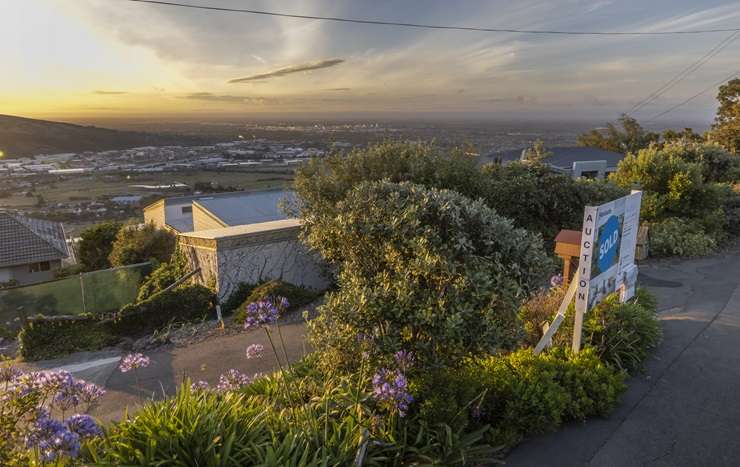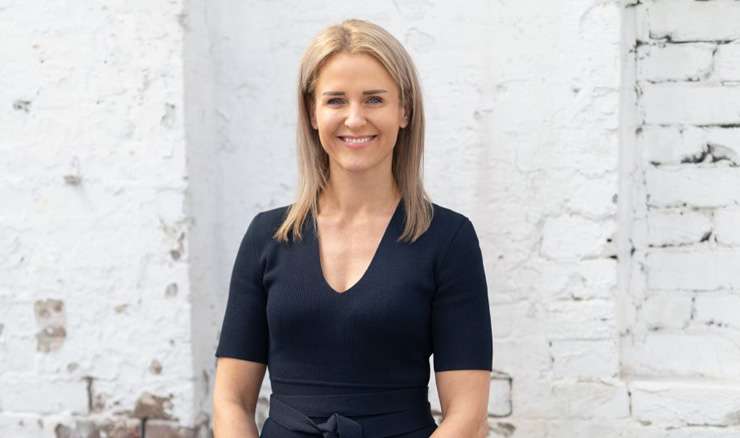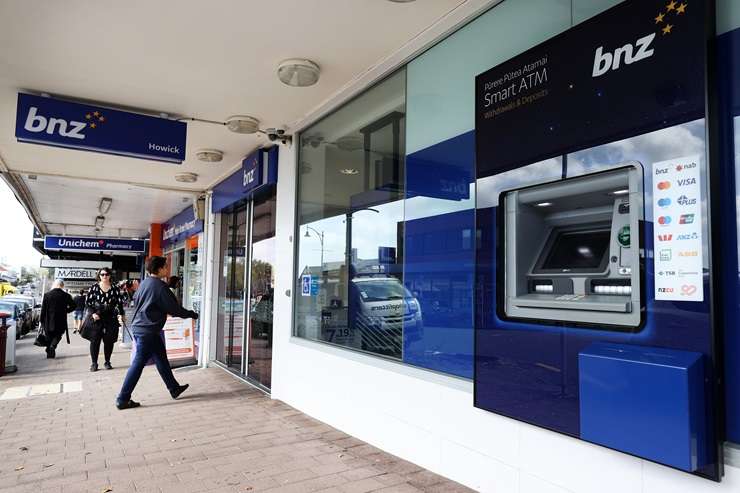It’s the comeback no one expected, least of all the real estate industry, which started 2023 in a pessimistic mood. And for the first half of the year, they had every right to be.
House prices tumbled, sales dried up and auction rooms emptied, as rising interest rates and a cost-of-living crisis squeezed the life out of the market. Extreme weather events also played their part, dampening any hopes of a traditional summer surge.
Vendors went into hiding, scared their homes would either languish untouched or sell for a painful price. As a result, new listings volumes tightened to record lows.
First-home buyers, meanwhile, had a clear playing field, with investors largely absent from the market. The rapid decline in prices and the combined lack of urgency and competition provided them with some of the best buying conditions since Covid.
Start your property search
But FOMO (fear of missing out) had given way to FOOP (fear of overpaying), with rising mortgage test rates and overall economic unease powerful handbrakes on the market.
In March, Auckland’s biggest real estate agency recorded just 765 sales – 35% below the previous March total, and 41% below the March average for the previous 10 years. In April, sales would tumble to 473.
Read more:
- A-Listers: OneRoof's real estate power rankings
- Cheap as: 2023 the year of price-slashing, mortgagee sales and $1 reserves
- Westpac chief economist: Don't expect interest rate cuts until 2025
But in the space of a few weeks the mood of the market suddenly changed. On May 24, the Reserve Bank of New Zealand raised the Official Cash Rate to 5.5% and signalled that this would be the last cash rate rise this cycle. Then in June, the CCCFA and loan-to-value ratio rules were loosened.
Agents started reporting seeing more first-home buyers at open homes and at auctions, and bank economists were picking the end of the house price slump and forecasting rises of up to 7.5% in 2024.
Figures from the OneRoof-Valocity House Value Index show the nationwide average property value hit the bottom in late June, and has risen steadily since. Same for Auckland, Canterbury and Wellington Region, which recorded their first three-monthly rises in more than year in September.
The slump took its toll, though. From peak to trough, over the course of almost a year and a half, NZ house values dropped 14% ($154,000). Some regions dropped harder and faster. Auckland’s average property value tumbled 18%, from a peak of $1.57m to a trough of $1.27m, while house values in Wellington Region must have felt as if they were in freefall, dropping 25% ($285,000) from peak to trough.
Canterbury, meanwhile, escaped the downturn relatively unscathed. Its average property value fell from a peak of almost $800,000 in June 2022 to a trough of $745,000 in June 2023, and at the time of writing was close to recouping its losses.
Valocity senior research analyst Wayne Shum thinks any speculation that the market might go gangbusters in the next few months is pushing it, though, especially if comparing today’s market to the post-Covid heights of 2020/2021 when people could barely get a space in the auction room.
That was driven by different factors – such as the suspension of loan-to-value ratios and 2.5% interest rates. “That’s what drove that market so we probably won’t see a frenzy, but we’ll see more activity I think.”
Factors driving the revival in the later part of this year include unleashed pent-up demand from first-home buyers, and buyers believing the bottom of the market had finally been reached so deciding to make their move.
“A lot of first-time buyers, they kind of held off to not pay as much but they are now jumping back into the market,” he says.

Valocity senior research analyst Wayne Shum: “If I were buying today, I’d ask myself, ‘Will prices be higher a year from now and will interest rates be lower?’ Probably, yes to both.” Photo / Fiona Goodall
Interest rates being close to peak, if not at peak, has also spurred people on and Shum thinks there could be a cut to rates next year, which makes now a good time to buy.
“If I were buying today, I’d ask myself, ‘Will prices be higher a year from now and will interest rates be lower?’ Probably, yes to both.”
Shum also thinks there may not be as much competition from investors as some expect regardless of changes to interest deductibility and that’s because mortgage rates are still very high.
“Maybe the intention is there but can they do it is another question.”
Also hanging over all categories of buyers is what the Reserve Bank decides to do about debt-to-income ratios, which are signalled as a possibility next year.
All buyers would be limited in how much they can borrow: “You are essentially placing a cap on how high house prices can grow because your income can’t grow as quickly.”
For investors, DTIs would mean weighing up what they can buy. “For example, it would limit buyers who were looking to purchase a 1000sqm site with the intention of subdividing it in two or three years’ time but expected very little holding income in the meantime.”

Christchurch's housing market escaped the worst of the downturn. Photo / Peter Meecham
Ray White’s chief economist, Australia-based Nerida Conisbee, says the turnaround in New Zealand is part of the global recovery in pricing.
“The US and Australia are now well above their 2022 peaks – absolutely it will happen in New Zealand.”
In Australia and America there was FOMO around people thinking prices would keep falling but when buyers realised prices weren’t going to fall any further, they started to pile back into the market.
Factors leading to the upwards drive in prices include renewed population growth combined with low construction numbers, low stock numbers and greater confidence brought about by interest rates being close to their peak which gives more certainty.
People need to get on with their lives and upgrade or downsize and that requires transactions, Conisbee says.
Like others, she does not think the market will go Covid crazy, but she points out prices always surge up much more than they go down. “There’s definitely a set pattern with what tends to happen with house prices.”
Conisbee thinks by the second half of next year New Zealand could see pricing potentially back to where it was at the peak of the pandemic.
Chris Farhi, Bayleys head of insights, says positive or negative mind-frames play a big part in revivals and downward trends.
The uncertainty around interest rates stalled the market 12 months ago and led to lower prices, and attached to that was negative sentiment.

Ray White chief economist Nerida Conisbee: “The US and Australia are now well above their 2022 peaks – absolutely it will happen in New Zealand.” Photo / Supplied
By September, though, there was more certainty around interest rates and even though they were bouncing around a bit there was less concern they would get out of control.
“As the market has stabilised people have become less negative. I think the negative sentiment was actually holding things back quite a bit over the past 12 months,” he says.
Farhi also believes migration is a factor in the revival as it puts pressure on the rental market which has indirectly caused more first-home buyers to look at buying.
But the change in sentiment is the big thing, and that changed quickly almost in advance of there being hard evidence of any positivity, and he says a lot of that is connected to media coverage and commentators, and they became more positive around June.
“I do think the market picks up a lot of its sentiment from what it sees in the media.”
While gloom is catchy, so is positivity, he says, despite the fact interest rates are still high.
New Zealand’s correction and recovery is moving faster than most other countries, according to the Knight Frank global house price index, Farhi says.
That’s because New Zealand’s cycle of tightening interest rates kicked off earlier than a lot of other countries, and also because in New Zealand fixed rates are for different terms and mainly one to five years.
“Maybe our market was a bit more affected by the drop and rise in interest rates than some other countries like the United States where you could get a 30-year fixed rate mortgage. They have quite a different dynamic to New Zealand.”

Rising interest rates sapped buyer and seller enthusiasm during the downturn. Photo / Fiona Goodall
Kelvin Davidson, chief economist with CoreLogic, says the fact there is still a strong labour market, with unemployment almost at a record low, means people are more likely to feel secure and commit to a big purchase, like a house.
The fact that the biggest rate increases are now behind us means households are able to figure out more or less what their worst-case scenario is.
“For a long time people haven’t known where the peak might be. Now they can be a bit more certain,” he says.
Other factors include loosening credit conditions, and less stock around but more activity which creates competition and price pressure.
Those things all add up to a change in sentiment, Davidson says, but he also says while the downturn in the market has ended, he does not think the next phase will be overly strong because housing is still expensive and interest rates are still high.
“Affordability is still an issue. We’re not going to see falls in mortgage rates any time soon.”
He, too, says if debt-to-income ratio caps are introduced, they will add another challenge for home buyers, but even if they are not brought in the fact mortgage rates are high already caps how much debt people can borrow from the bank.
“In some ways high mortgage rates are doing the job already but we may see some formal rules as well.”
- Click here to find properties for sale













































































